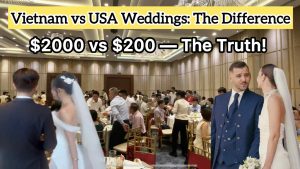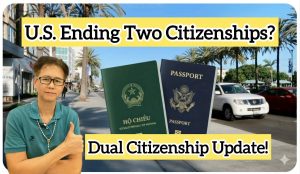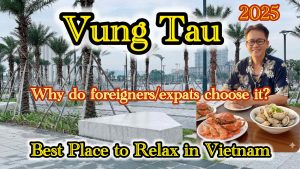Should Overseas Vietnamese and Foreigners Retire in Thailand? Pros, Cons & Real-Life Considerations

Should Overseas Vietnamese and Foreigners Retire in Thailand?
Should Overseas Vietnamese and Foreigners Retire in Thailand?
Retiring abroad has become an increasingly attractive option for people from developed countries seeking a lower cost of living, better weather, and a more relaxed lifestyle. Among Southeast Asian countries, Thailand has emerged as a top destination, not only for tourists but also for retirees—including Vietnamese Americans, Australians, Europeans, and other foreign nationals.
But is Thailand truly the retirement paradise it seems to be? And more specifically, is it suitable for overseas Vietnamese who may also be considering returning to Vietnam?
This article explores the reality of retiring in Thailand from multiple angles—cost, healthcare, visas, lifestyle, and cultural fit—to help you decide whether this tropical country should be your next home.
1. Why Thailand is Popular Among Retirees
Thailand is often labeled as the “Land of Smiles,” and for good reason. It offers a welcoming environment, warm climate, diverse landscapes, and an overall lower cost of living compared to Western countries. Cities like Chiang Mai, Pattaya, Phuket, and Bangkok have large, active expat communities and international-standard infrastructure.
But beyond the postcard imagery, several practical reasons explain its popularity among retirees:
- Affordable housing
- High-quality healthcare
- Relaxed visa policies for retirees
- Vibrant street food and culture
- Safe, politically stable environment (in most areas)
2. Cost of Living: Reasonable, But Varies by Region
One of the biggest draws to Thailand is how far your money can go.
- A one-bedroom apartment in Bangkok may cost $300–500/month, while in Chiang Mai or Pattaya, it could be as low as $200–350/month.
- Eating local Thai food from street vendors costs $2–4 per meal.
- Utilities, internet, and basic services average $100/month.
- A single person can live comfortably on $1,000–1,500/month, while couples can enjoy a good lifestyle with $2,000/month.
However, foreigners who expect luxury Western-style living or require frequent private medical services should budget more. Thailand is affordable but not “cheap” when you’re living long-term.
3. Healthcare: Excellent But Requires Planning
Thailand has a reputation for excellent healthcare, especially in private hospitals in Bangkok, Phuket, and Chiang Mai. Hospitals like Bumrungrad International and Samitivej offer world-class care with English-speaking staff.
For overseas Vietnamese retirees—especially those from the U.S.—there’s one issue to note: Medicare is not accepted abroad, including in Thailand. This means you’ll need to purchase private health insurance, which can cost $1,000–3,000/year depending on age and medical history.
Without insurance, a hospital stay or surgery can cost thousands of dollars out-of-pocket. That said, even self-pay rates in Thailand are often 50–70% cheaper than in the U.S. or Australia.
4. Retirement Visa: Clear Requirements, Renewable Annually
Thailand offers retirement visas for people over 50 years old, with two main options:
- Non-Immigrant O-A Visa (one-year renewable)
- Non-Immigrant O-X Visa (valid up to 10 years for certain countries)
Visa requirements generally include:
- A Thai bank account with at least 800,000 baht (~$22,000 USD), or
- A monthly pension/income of 65,000 baht (~$1,800 USD), or
- A combination of income and savings
Visa holders must report their address every 90 days to immigration and renew the visa annually. While the process is relatively straightforward, it’s paperwork-heavy and often easier with a local agent.
5. Cultural Fit for Overseas Vietnamese
For overseas Vietnamese who are considering retiring in Thailand instead of Vietnam, several factors come into play:
Pros:
- Modern conveniences, especially in large cities
- Less bureaucracy and fewer expectations from extended family
- More personal freedom, especially for those used to Western lifestyles
- Easier to integrate anonymously without community pressure
Cons:
- Language barrier: English is more commonly spoken than Vietnamese, but Thai is still essential in daily life
- Culturally, it may feel less “at home” than Vietnam
- No deep familial or ancestral ties, which may feel isolating to some
6. Lifestyle: Freedom and Flexibility
One of Thailand’s biggest appeals is its open lifestyle. You can choose to live:
- In a peaceful beach town like Hua Hin
- In a cool mountainous city like Chiang Mai
- Among nightlife and luxury malls in Bangkok or Pattaya
There is freedom of dress, religion, relationships, and self-expression, which appeals strongly to Westerners and Vi?t Ki?u who have spent decades abroad.
Unlike more conservative Asian countries, Thailand has a liberal attitude toward personal life choices, which makes it easier for retirees to feel “free” and unjudged.
7. Should You Buy Property or Rent?
Foreigners cannot legally own land in Thailand but can purchase condominiums under certain conditions:
- Foreign ownership in a building must be under 49%
- Money must be transferred from abroad and documented
Prices vary by location, but a mid-range condo in Bangkok or Chiang Mai may cost $60,000–100,000 USD. However, many retirees choose to rent instead of buy due to flexibility and visa considerations.
Renting also reduces the risk of market fluctuations and complex legal procedures.
8. Transportation and Mobility
- In Bangkok: public transport like BTS Skytrain and MRT subway is clean and efficient
- In smaller towns: renting or buying a motorbike is the norm
- Ride-hailing apps like Grab are widely used but cost more than taxis
- Foreigners can own cars, but need an international or Thai driver’s license
Daily transport expenses are reasonable, but Bangkok traffic is intense, and driving yourself in a foreign country may be stressful.
9. Downsides and Cautions
Thailand isn’t perfect. Here are a few challenges to consider:
- Language barrier can be isolating for long-term residents
- Visa policies are changing frequently and require attention
- Legal protections for foreigners in disputes are limited
- Cultural differences may cause misunderstandings in daily life
- Some foreigners report loneliness, especially if they move alone
It’s important to visit first, spend time exploring different areas, and see how well you adapt before committing to a long-term stay.
10. Final Thoughts: Is Thailand the Right Choice for You?
Thailand offers a rare mix of affordability, beauty, healthcare, and freedom that’s hard to find elsewhere in Asia. For overseas Vietnamese or foreigners who are financially independent, adaptable, and seeking a culturally vibrant but laid-back retirement, Thailand is an excellent choice.
However, it’s not for everyone. If you value deep family connection, language familiarity, or social belonging, you might still prefer Vietnam or your country of origin.
Ultimately, retirement is not just about the cost—it’s about comfort, identity, purpose, and peace of mind. Thailand offers all of these to those willing to embrace the change.
RetireInThailand #ThailandExpatLife #LivingInThailand #ThailandRetirement #ExpatTips #ThaiVisa #CostOfLivingThailand #ThailandFreedom





After watching this video, Thailand really feels like a mini America. So many foreigners here! I hope to visit someday and see it myself.